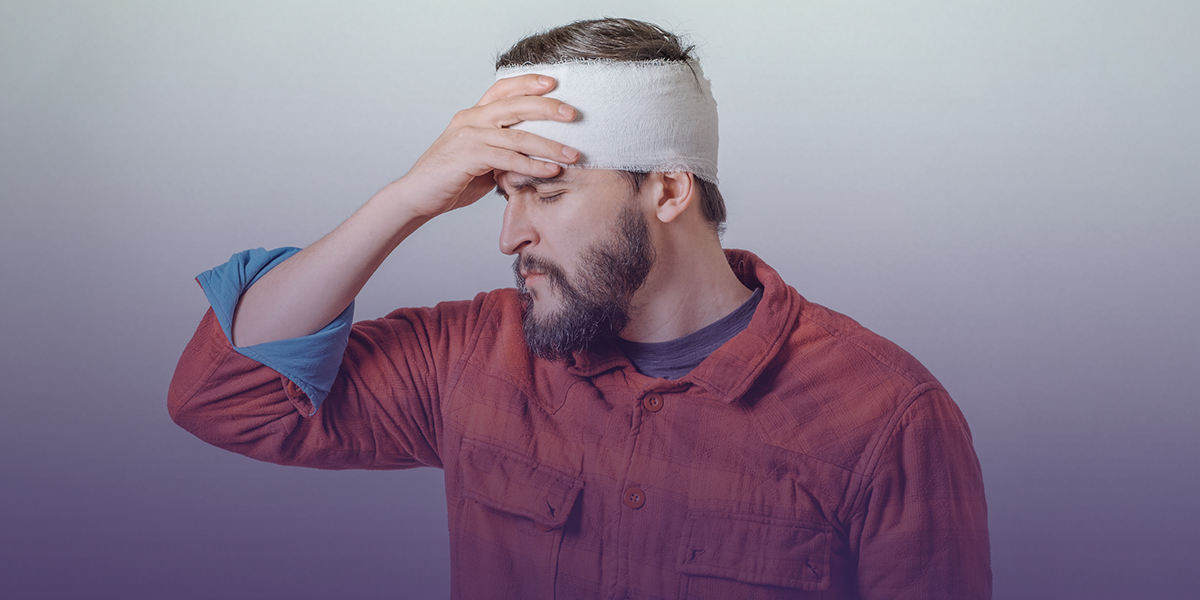It depends. For minor concussions, flying should be fine. However, it can be dangerous to fly if you experience major head trauma, such as brain bleeding or a bone fracture in your skull. Flying can cause stress, which doesn’t help your body to heal after a concussion.
If you’ve experienced severe head trauma, it’s best to consult with a doctor before choosing to fly. Patients who need to fly to receive medical care can opt for a medical escort flight. That way, they can access treatment safely and without anxiety over their health.
What Is a Concussion?
A concussion is a mild traumatic brain injury (mTBI) that affects your brain functions. People usually get them after suffering a blow to the head caused by violent shaking, falling or being hit with an object. Most concussions are temporary, non-life-threatening and resolve within 10 days with proper rest and treatment.
When individuals get a concussion, it damages the cells, tissues, blood vessels and nerves in their brains. Even though concussions are generally not life-threatening, their effects can be serious.
Causes of Concussions
Concussions can happen in various ways. They could result from getting hit in the head by a ball while playing sports, being in a car accident or receiving other direct head injuries. You could also get a concussion through indirect head trauma.
Sometimes, depending on the incident, a concussion develops after the body suffers injury because the impact was so significant it went through the bones up to the brain. For instance, a blow to your jaw or chin could result in a concussion if hit in the right spot.
Common Concussion Symptoms
Determining if you have a concussion can be challenging because symptoms are subtle and often don’t show up immediately. If you have a concussion, you could experience:
- Ringing in the ears
- Headaches
- Nausea
- Blurry vision
- Fatigue
- Dizziness
- Confusion
- Forgetfulness
- Slurred speech
- Difficulty concentrating
- Sensitivity to light and noise
Additionally, sometimes individuals can lose consciousness when getting a concussion. If symptoms are severe, ensure you seek medical attention to get a proper diagnosis and begin treatment to prevent symptoms from worsening.
How Soon Can You Fly After a Concussion?
You can fly in an aircraft if you have a concussion. However, taking concussion precautions is essential if you have to catch a flight. Many symptoms you experience with a concussion could worsen throughout the entire airport process. You want to get as much rest as possible and not get stressed out, so while you can fly with a concussion, it may be better not to.
If you have the time to continue resting after getting a concussion, take it. However, don’t worry too much if you have to fly with a concussion. Research shows that mild concussions aren’t affected by flying, so you should be fine.
Dangers of Flying After a Concussion
While concussions are considered mild traumatic brain injuries, some situations may result in more severe symptoms. Consult your doctor before boarding a plane when you have a head injury. Depending on the situation, your concussion could be a symptom of a bigger brain injury or have more severe side effects while you’re in the air.
There is a possibility of developing a brain hemorrhage if you fly with a concussion. Commercial aircraft cabins are typically pressurized to between 6,000 and 8,000 feet, so you’re in a reduced oxygen environment when you fly. As your brain heals, it needs as much oxygen as possible to aid in the restoration process. Some brain cells could die if there is a lack of oxygen.
Tips for Flying With a Concussion
If you need to fly with a concussion, there are some precautions you can take to minimize your symptoms:
- Stay hydrated: Drink water to stay hydrated throughout the flight to mitigate your symptoms.
- Wear earplugs or noise-canceling headphones: If you are sensitive to sound because of your concussion, wearing earplugs or headphones can help block out the noises surrounding you.
- Wear sunglasses or an eye mask: If you’re sensitive to light, eye protection can help you sleep and avoid overstimulation while on the flight.
- Take your prescriptions on time: Keep track of when you need to take your medicine to stay healthy during your journey.
- Sleep: Try to sleep during your flight to relax and start healing.
- Fly with a medical escort: To help you feel more comfortable while flying with a concussion, you could ask for a medical escort to fly with you. The medical escort will help you throughout the flight, giving you your medication and ensuring you arrive at your destination safely.
When you take the necessary precautions during flights with a concussion, you can ensure you stay safe. If you’ve had a head injury, you should talk to a medical professional before deciding to get on a flight. Your doctor can let you know whether it’s safe to fly in your particular case.
Fly With a Medical Escort From REVA
Flying with a concussion is possible, but you may need to hire a medical escort to travel with a serious injury. At REVA, our medical escorts have the training and experience to keep you safe and comfortable during your flight. We’ll help you get to your destination safely — whether you have a concussion or another medical emergency.
Choose REVA for a medical escort with the highest quality of care. We can help you determine insurance coverage, coordinate transportation, and connect you with medical care once you land. Request a quote to get started today!

